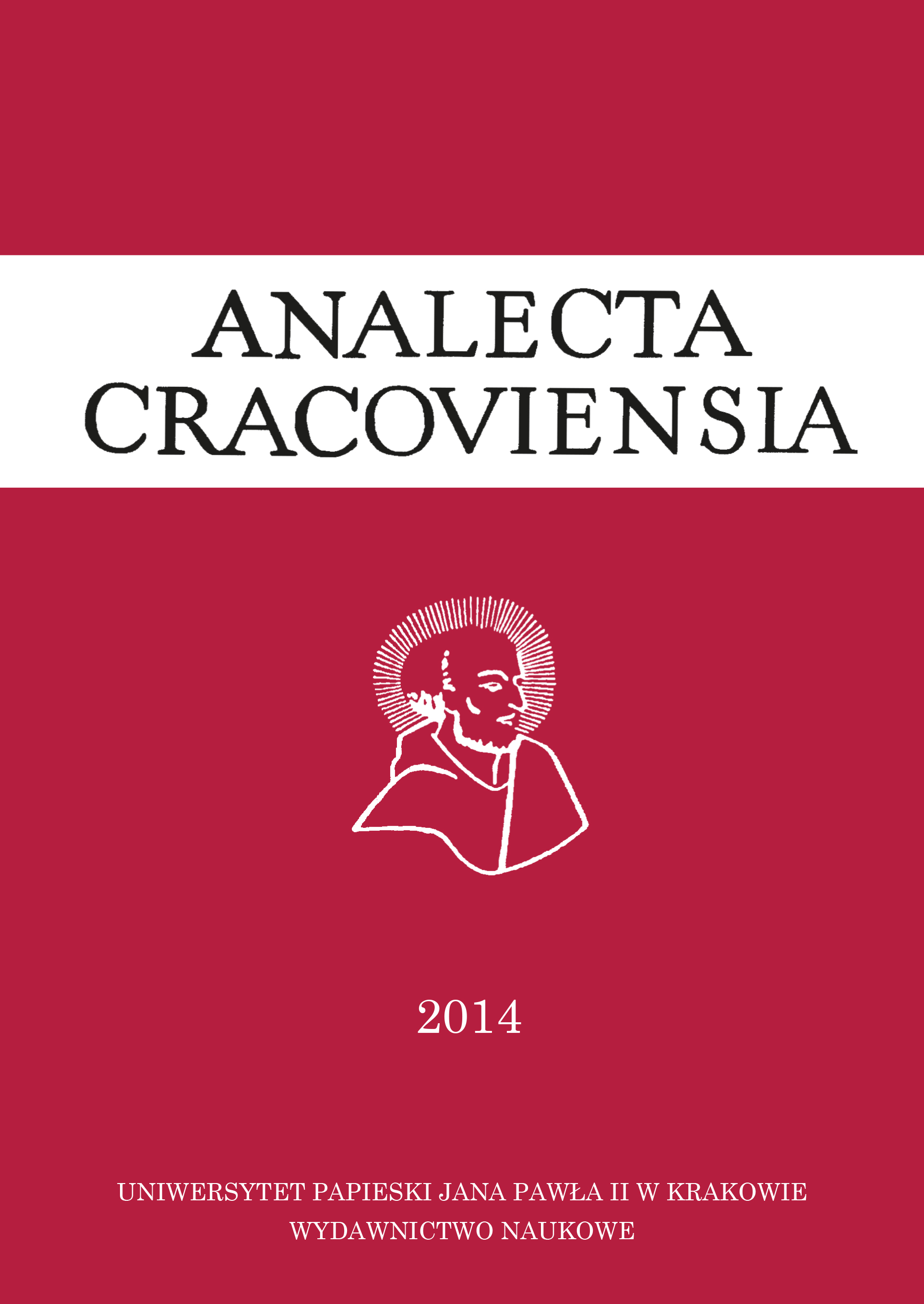Organization and scientific promotions in the Pontifical University of John Paul II in Krakow
DOI:
https://doi.org/10.15633/acr.967Keywords:
Sapietnia christiana, scientific title, scientific degree, training scheme, universityAbstract
The apostolic constitution Sapietnia christiana stipulates coherency and compatibility of the rules for ecclesiastical universities and other universities of the different ecclesiastical regions. The rules are fully implemented in the Pontifical University of John Paul II in Krakow. The status of the university and its program have their sources both in the canonical rules and civil laws, and also in the rich scientific tradition of Krakow. The system of career advancement of the academic teachers embodies polish law. As a result, Polish authorities recognize the scientific titles and the scientific degrees granted by the university.
References
Dekret Kongregacji Edukacji Katolickiej, 19.03.2014, N. 175/2011, Archiwum UPJPII.
Dekret Kongregacji Edukacji Katolickiej, 5.02.2010, Prot. N. 644/81, Archiwum UPJPII.
Dyduch J., Charakterystyka Statutu Uniwersytetu Papieskiego Jana Pawła II w Krakowie, „Analecta Cracoviensia” 44 (2012), s. 275–286.
Dyduch J., Formacja intelektualna kapłanów w Archidiecezji Krakowskiej, „Notificationes e Curia Metropolitana Cracoviensi” 1991 nr 129, s. 72–74.
Dyduch J., Papież Jan Paweł II, protektor Papieskiej Akademii Teologicznej, [w:] Sympozjum naukowe z okazji 15-lecia pontyfikatu Jana Pawła II, red. J. Szczurek, R. Zawadzki, Kraków 1994.
Dyduch J., Rola uczelni kościelnych i katolickich w świetle powszechnego prawodawstwa posoborowego, „Analecta Cracoviensia” 24 (1992), s. 135–152.
Jan Paweł II, Konstytucja apostolska Sapientia christiana, 15.04.1979, AAS 71 (1979), s. 469–499, tłum. pol. Posoborowe prawodawstwo kościelne, zebrał i tłum. ks. E. Sztafrowski), t. XII, z. 1, s. 210–256.
Kodeks prawa kanonicznego, przekład polski, Poznań 1984.
Kubiś A., Papieski Wydział Teologiczny w Krakowie 1954–1981, [w:] Wyższe szkolnictwo w Polsce, red. J. Majka, Kraków 2002, s. 21–22.
Pasternak S., Reorganizacja studiów kościelnych – szczególnie wykładów z prawa kanonicznego w świetle „Sapientia christiana”, „Prawo Kanoniczne” 23 (1980) nr 3–4.
Pierwsza uroczysta inauguracja roku akademickiego 2009/2010, broszura, red. R. Bogacz, Kraków 2009.
Statut Uniwersytatu Papieskiego Jana Pawła II, 5.02.2010, Prot. N. 641/81, Archiwum UPJPII.
Statut Wydziału Prawa Kanonicznego UPJPII, 19.03.2014, N. 175/2011, Archiwum UPJPII.
Umowa między Rządem Rzeczypospolitej Polskiej a Konferencją Episkopatu Polski w sprawie statusu prawnego szkół wyższych zakładanych i prowadzonych przez Kościół, w tym uniwersytetów, odrębnych wydziałów i wyższych seminariów duchownych oraz w sprawie trybu i zakresu uznawania przez Państwo stopni i tytułów naukowych nadawanych przez te szkoły wyższe, 1 VII 1999 (Dz.U. Nr 63, poz. 727).
Downloads
Published
Issue
Section
License
Copyright (c) 2015 Jan Maciej Dyduch

This work is licensed under a Creative Commons Attribution-NonCommercial-NoDerivatives 3.0 Unported License.
Authors who publish with this journal agree to the following terms:
- Authors retain the copyright and full publishing rights without restrictions, and grant the journal right of first publication with the work simultaneously licensed under a Creative Commons Attribution 4.0 International License that allows others to share the work with an acknowledgement of the work's authorship and initial publication in this journal.
- Authors are able to enter into separate, additional contractual arrangements for the non-exclusive distribution of the journal's published version of the work (e.g., post it to an institutional repository or publish it in a book), with an acknowledgement of its initial publication in this journal.
- Authors are permitted and encouraged to post their work online (e.g., in institutional repositories or on their website) prior to and during the submission process, as it can lead to productive exchanges, as well as earlier and greater citation of published work (See The Effect of Open Access).

